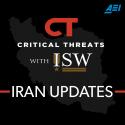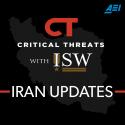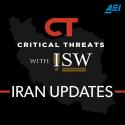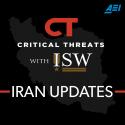Iran Update, July 12, 2023
Jul 12, 2023 - ISW Press
Iranian-backed militias are continuing to reinforce their positions in Deir ez Zor Province, possibly to bolster defensive positions against a rumored International Coalition attack.
Iraqi Prime Minister Mohammed Shia al Sudani announced the Iraqi government will evade US sanctions on Iran by trading Iraqi crude oil for Iranian gas during a televised statement on July 11.
Social media accounts affiliated with the Iraqi Popular Mobilization Forces called for supporters to siege the US Embassy in Baghdad, which could elevate the risk of an attack on US personnel in Iraq.
Iranian officials and media responded negatively to the July 10 Russia-Gulf Cooperation Council (GCC) joint statement, highlighting preexisting tensions in the Russo-Iranian relationship.
The Raisi administration is attempting to override parliamentary adjustments to its mandatory veiling bill. Regime enforcement of mandatory veiling—in any capacity—will likely exacerbate intra-regime tensions. It will also likely reignite anti-regime sentiments.










